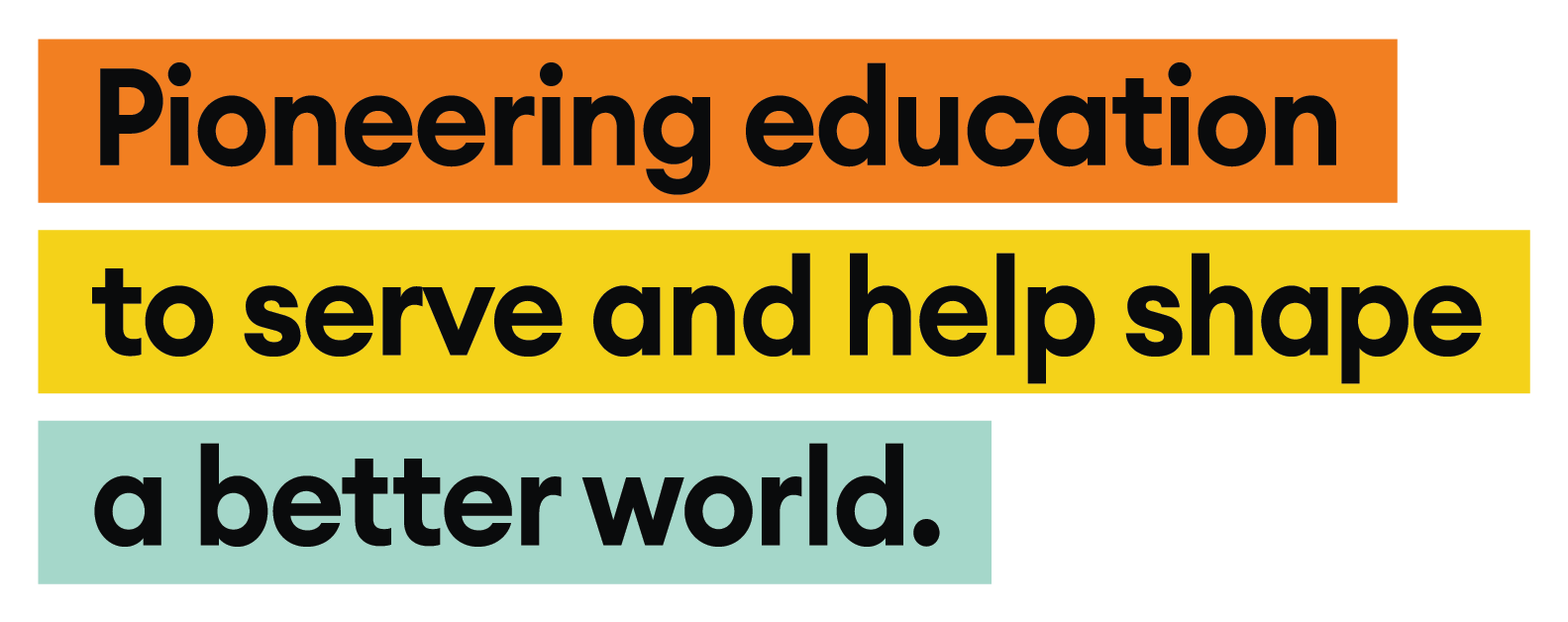Maths is a journey not a destination | Maths in the Prep School
15 May 2019
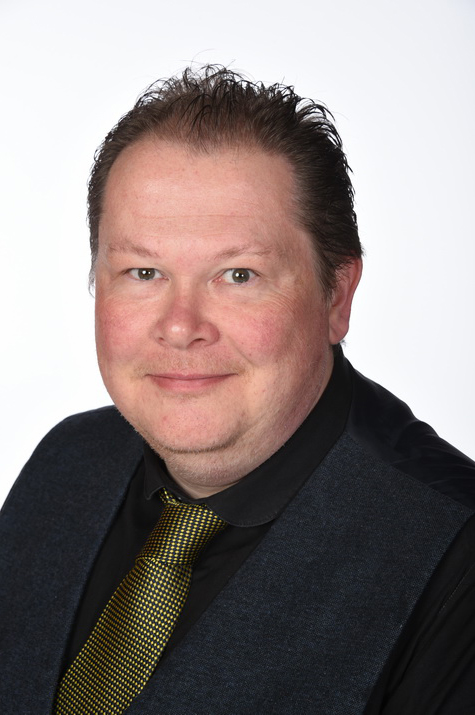
Robert Hicks
Assistant Head (Academic) Prep School Director of Academic Systems
From Wellington’s opening year, we have always worked very hard to foster the idea among all our pupils that maths is nobody’s enemy. In more traditional educational setups, maths has often suffered something of a negative reputation for being a dull, non-creative subject that is all about completing reams of problems with no deeper purpose than acquiring a familiarity with numbers and formulae. At Wellington, this is fundamentally not the approach we take to teaching maths to any age group. Instead, we aspire to make maths a much more interesting, investigative subject that gives pupils the tools they need to better understand the world around them.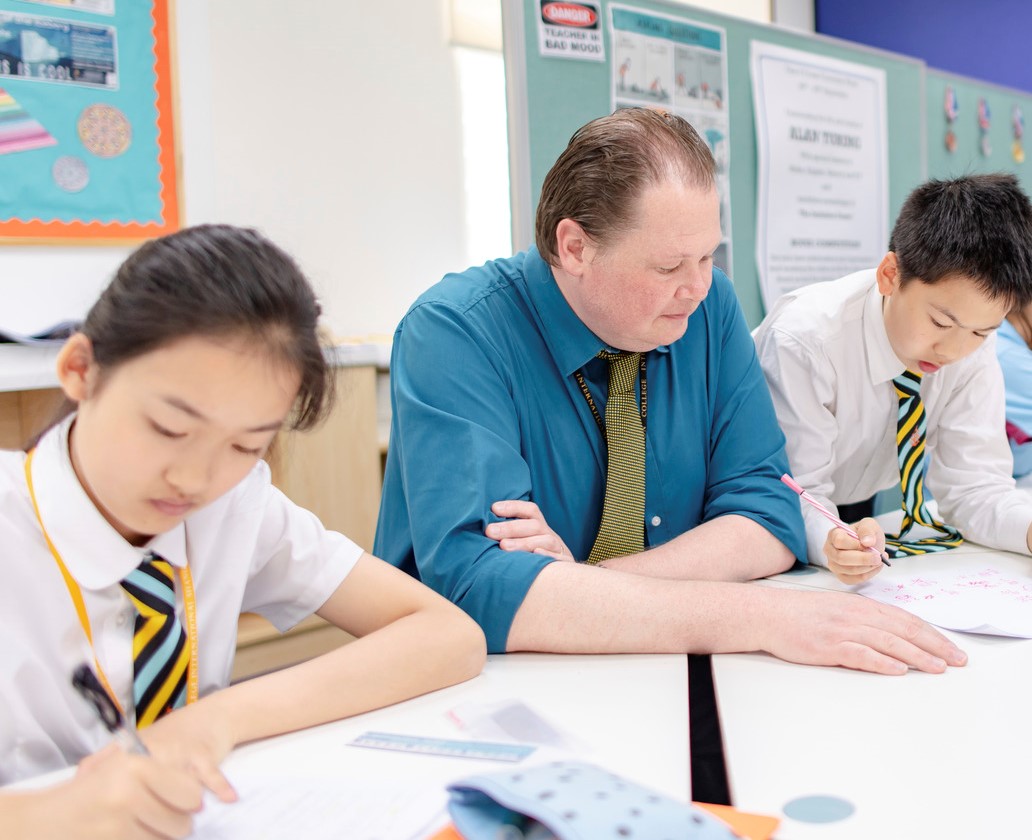 A big part of this process is to give pupils the freedom to use different methods to the mathematical problems we set them. They’re encouraged to try different approaches, even to get things wrong as part of the process then reflect on why and how they can improve their method before discussing their efforts with each other and their teachers.
While this can prove to be an adjustment for some pupils, they almost always warm to it quickly. The end result is that we produce mathematicians who care much more about the process, the ‘journey’, than the final answer, which is usually just a number and isn’t inherently all that interesting. This is an essential part of fully engaging with maths and it’s equally essential that this way of thinking starts as early as possible, which is why we instil it in our Prep School pupils.
A big part of this process is to give pupils the freedom to use different methods to the mathematical problems we set them. They’re encouraged to try different approaches, even to get things wrong as part of the process then reflect on why and how they can improve their method before discussing their efforts with each other and their teachers.
While this can prove to be an adjustment for some pupils, they almost always warm to it quickly. The end result is that we produce mathematicians who care much more about the process, the ‘journey’, than the final answer, which is usually just a number and isn’t inherently all that interesting. This is an essential part of fully engaging with maths and it’s equally essential that this way of thinking starts as early as possible, which is why we instil it in our Prep School pupils.
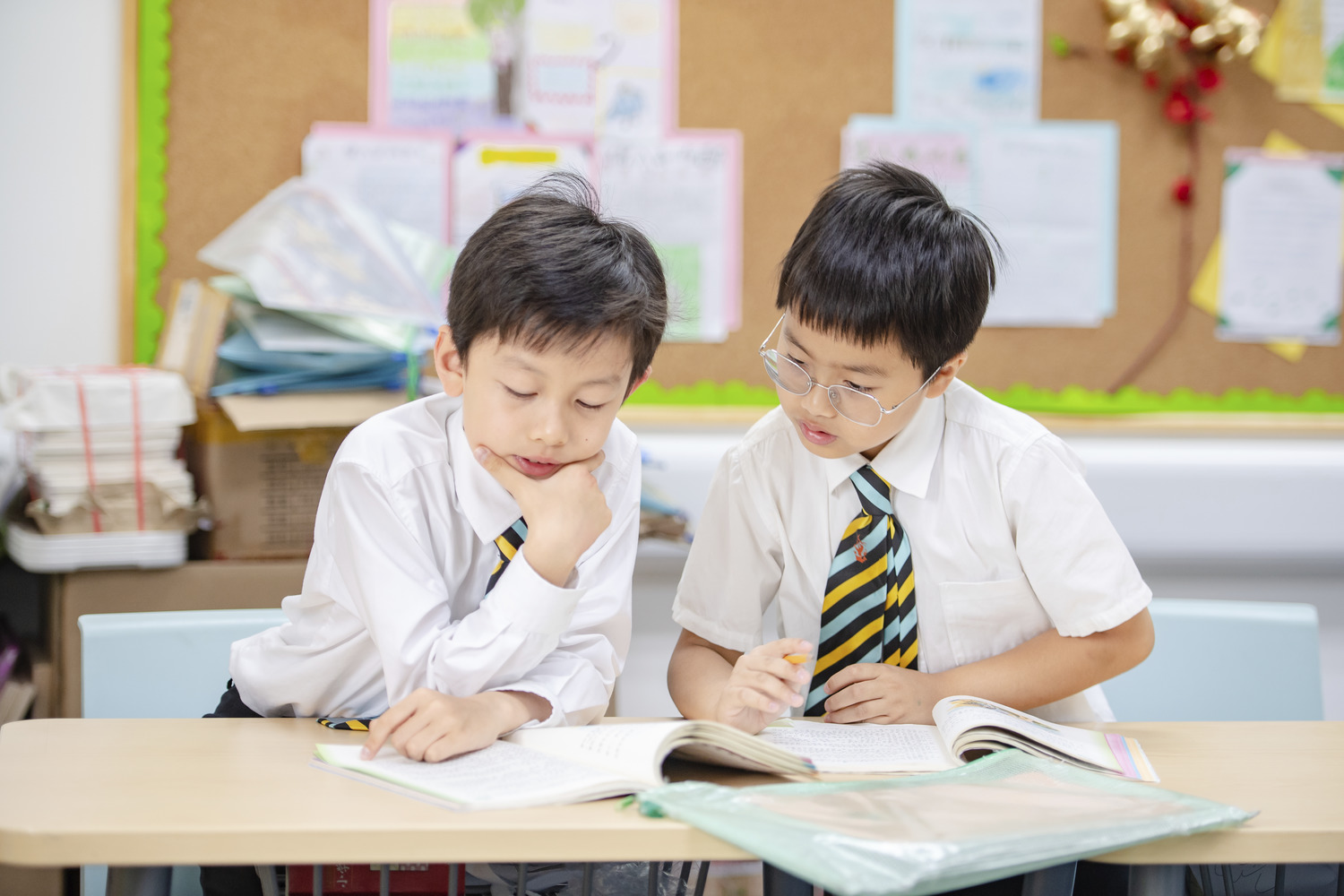 Approaching any mathematical problem becomes much more interesting when pupils are faced with a number of different journeys they can take to get to the destination. They might take a path that is simple but laborious, or they might try a different approach that is technically more tricky but also more efficient. Perhaps they might even take a sort of ‘scenic route’, where they use a combination of various techniques and subsequently discover more about the question and other supporting mathematic principles as they answer it.
Pupils are also encouraged to work in different ways to discover what suits them best. Our general classroom practice in the Prep School is to start off by setting pupils a difficult problem, and with minimal guidance we see how far they can get on their own. They can work individually, in pairs or small groups, they can work in their books or on mini whiteboards, or using computers if they prefer. What’s important is that they have the autonomy to decide how they want to approach the set problem.
Approaching any mathematical problem becomes much more interesting when pupils are faced with a number of different journeys they can take to get to the destination. They might take a path that is simple but laborious, or they might try a different approach that is technically more tricky but also more efficient. Perhaps they might even take a sort of ‘scenic route’, where they use a combination of various techniques and subsequently discover more about the question and other supporting mathematic principles as they answer it.
Pupils are also encouraged to work in different ways to discover what suits them best. Our general classroom practice in the Prep School is to start off by setting pupils a difficult problem, and with minimal guidance we see how far they can get on their own. They can work individually, in pairs or small groups, they can work in their books or on mini whiteboards, or using computers if they prefer. What’s important is that they have the autonomy to decide how they want to approach the set problem.
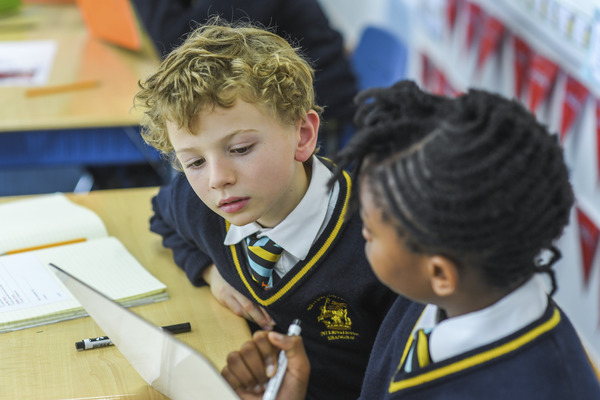 Whatever they decide, our expectation is that they must be prepared to justify their approach and then explain their investigations to the rest of the class. Often this will inspire pupils to try different ways of working and approaching problems when they see their peers delivering a good explanation of their work. Nobody is afraid to get things wrong, in fact, pupils can sometimes learn as much from failed approaches as successful ones, as they learn to refine their method or decide that another one might be more appropriate for the current task.
In every case, we can see Prep pupils engaging with the task at hand, eager to try out their ideas and unafraid of the outcome.
Whatever they decide, our expectation is that they must be prepared to justify their approach and then explain their investigations to the rest of the class. Often this will inspire pupils to try different ways of working and approaching problems when they see their peers delivering a good explanation of their work. Nobody is afraid to get things wrong, in fact, pupils can sometimes learn as much from failed approaches as successful ones, as they learn to refine their method or decide that another one might be more appropriate for the current task.
In every case, we can see Prep pupils engaging with the task at hand, eager to try out their ideas and unafraid of the outcome.
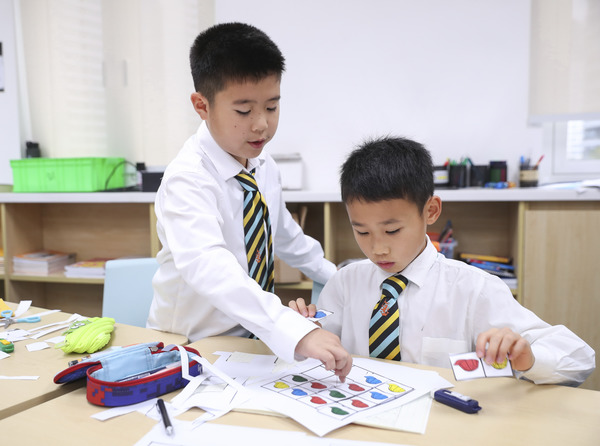 Another way in which we try to make maths as engaging as possible early on in pupils’ academic lives is to continually link what they learn in the classroom to the wider world. Pupils can explore maths in the tessellation of Islamic tile patterns, in the formation of features of the natural world, in the trajectory arc of a kicked football. The main message we aim to reinforce as much as possible is that maths is everywhere; it doesn’t exist purely as a line of numbers on a page.
This concept is also closely linked with our efforts around instilling global citizenship. For example, we might contextualise Pythagoras’ Theorem by briefly exploring his life and its impact on Ancient Greece’s society as they applied mathematics to create a wondrous building previously undreamt of. Or when we talk about place value, we can discuss the invaluable contribution that India made by inventing the digit ‘0’, number system. Or, whenever we use statistical graphs and charts, we will aim to utilise real-life relevant data, such as population figures or political affiliation percentages in various countries.
In each case, we are able to make these real-world links clear to our pupils and show them how maths can help them navigate what’s going on today, as well as yesterday and maybe even tomorrow.
Another way in which we try to make maths as engaging as possible early on in pupils’ academic lives is to continually link what they learn in the classroom to the wider world. Pupils can explore maths in the tessellation of Islamic tile patterns, in the formation of features of the natural world, in the trajectory arc of a kicked football. The main message we aim to reinforce as much as possible is that maths is everywhere; it doesn’t exist purely as a line of numbers on a page.
This concept is also closely linked with our efforts around instilling global citizenship. For example, we might contextualise Pythagoras’ Theorem by briefly exploring his life and its impact on Ancient Greece’s society as they applied mathematics to create a wondrous building previously undreamt of. Or when we talk about place value, we can discuss the invaluable contribution that India made by inventing the digit ‘0’, number system. Or, whenever we use statistical graphs and charts, we will aim to utilise real-life relevant data, such as population figures or political affiliation percentages in various countries.
In each case, we are able to make these real-world links clear to our pupils and show them how maths can help them navigate what’s going on today, as well as yesterday and maybe even tomorrow.
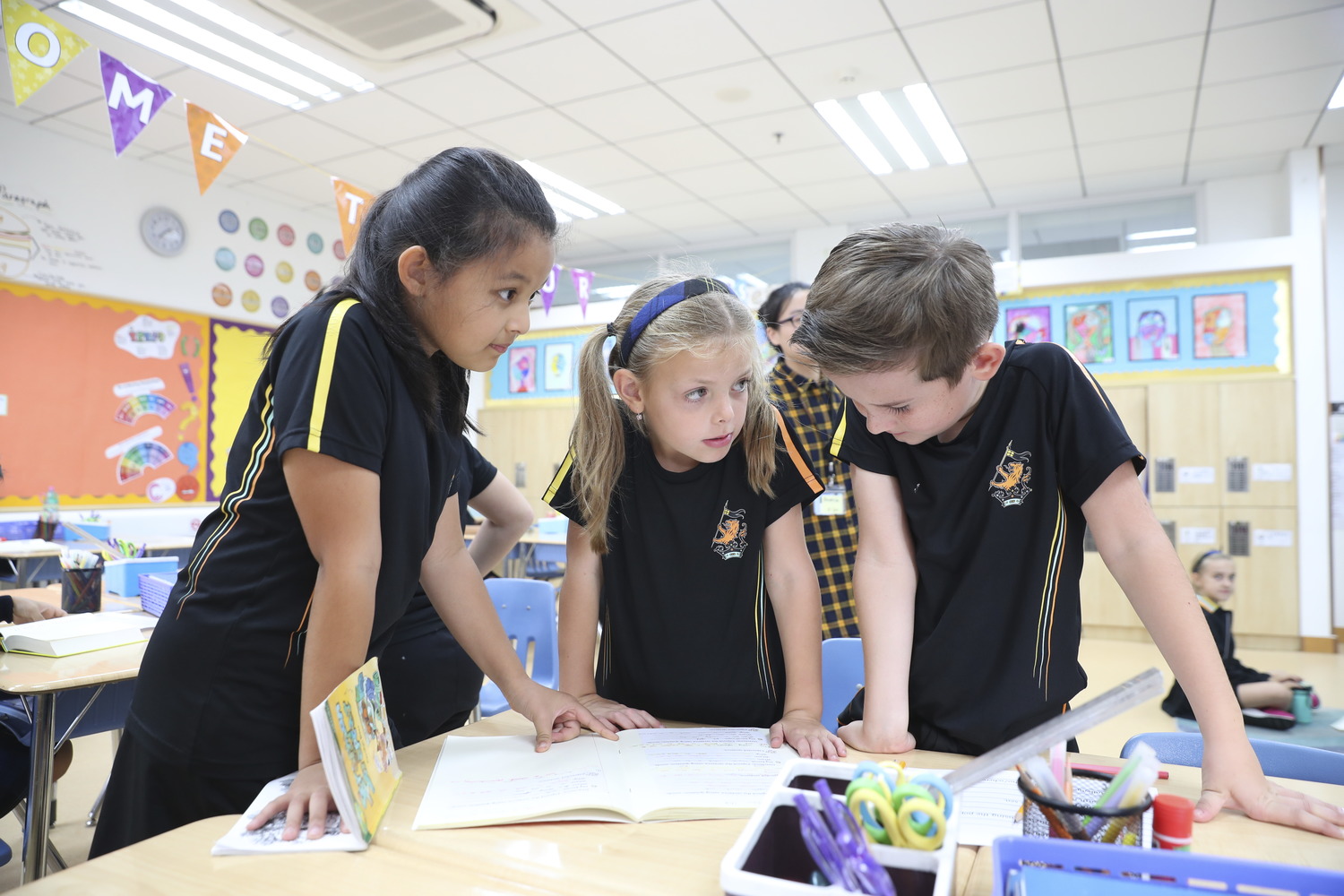
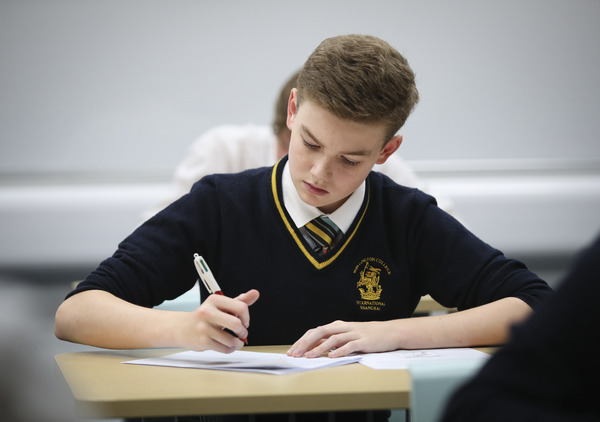 If maths is a lifelong journey, then it’s essential that pupils have the right tools and supplies early on. That’s what we aim to give them in Prep School. We want each pupil to not only have sufficient grounding in various mathematical principles and techniques, but also a highly enquiring and experimental mind that isn’t afraid to try different paths to see where they lead.
To finish, I would like to hand over to Kate McNeil, who has done a fantastic job as Head of Prep Maths since joining us this year. Not only is she fantastic with the pupils, she is also full of ideas about how we can keep improving our maths offering and subsequently keep it as relevant, engaging and exciting as possible.
If maths is a lifelong journey, then it’s essential that pupils have the right tools and supplies early on. That’s what we aim to give them in Prep School. We want each pupil to not only have sufficient grounding in various mathematical principles and techniques, but also a highly enquiring and experimental mind that isn’t afraid to try different paths to see where they lead.
To finish, I would like to hand over to Kate McNeil, who has done a fantastic job as Head of Prep Maths since joining us this year. Not only is she fantastic with the pupils, she is also full of ideas about how we can keep improving our maths offering and subsequently keep it as relevant, engaging and exciting as possible.
Related Articles

Why our youngest learners need boundaries and routines18 Dec 2024
As a parent, you are your child’s first teacher. One of the most effective ways you can set your child up for long-term success is by establishing clear boundaries and creating consistent routines. S
Read More

An Old Wellingtonian's journey to contempory theatre07 Jan 2025
At Wellington, our mission is to equip our pupils with the knowledge and skills to be well-rounded, globally-minded citizens. So our key metric of success is ultimately the success of our pupils. In
Read More

From pupil to mentor: A journey through music and teaching06 Jan 2025
Jackson Faulker, Wellington Shanghai Class of 2018, joined us last month for Wellington Shanghai’s 10th-anniversary celebrations both as a founding pupil and as a special guest performer in the school
Read More










